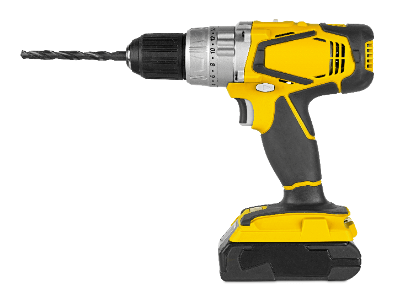What Is a Screwdriver Drill?

A screwdriver drill is a versatile power tool that combines the functionalities of a screwdriver and a drill. This tool is essential in various settings like DIY projects, construction sites, and furniture manufacturing, offering both screw tightening and hole drilling capabilities.
Uses of Screwdriver Drills
Screwdriver drills are utilized for a wide array of applications, ranging from personal DIY tasks to professional projects. They are mainly employed for tightening and loosening screws and drilling holes in different materials, making them invaluable for tasks like furniture assembly and installation work.
Electric screwdriver drills are much more efficient than hand-cranked screwdrivers. Various tasks can be performed By changing the tip. In addition to plus and minus bits, there are square and hexagonal bits, and there are also special bits for different materials, such as woodworking and ironworking. Socket bits can also be used for bolts and nuts.
Screwdriver drills have a clutch function that allows the torque to be adjusted according to the screw to be used.
Principle of Screwdriver Drills
Screwdriver drills work by attaching a bit to the chuck of the tool and rotating it at high speed using electric power. This function allows for efficient screw tightening, loosening, or drilling. The tool’s operation is distinct from an impact driver, which combines rotational motion with an impacting action.
Users can change the direction of rotation to either tighten or loosen screws. By swapping the bit, the drill can adapt to various tasks and materials.
How to Choose Screwdriver Drills
1. Intended Use
Select a screwdriver drill based on the intended use. Professional-grade drills offer enhanced durability and battery life but are heavier compared to DIY models.
2. Power Supply
Choose between corded drills and those with rechargeable batteries. Corded models are lighter and ideal for stationary work, while battery-operated drills provide mobility.
3. Trigger Functionality
The trigger controls the bit’s rotation. Some models offer variable speed functions, allowing for speed adjustment based on the degree of trigger pull.
4. Impact Driver vs. Screwdriver Drill
While screwdriver drills are suited for precise work with adjustable torque, impact drivers provide additional power suitable for heavy-duty tasks, albeit less suitable for delicate operations.
Other Information on Screwdriver Drills
Using Screwdriver Drills Effectively
- Adjusting Torque: Adapt the torque setting based on the screw or material.
- Installing the Bit: Securely fit the bit into the chuck to ensure stability during use.
- Speed Adjustment: Utilize the speed change switch for optimal control, especially for longer screws or larger holes.
- Starting Operation: For corded models, connect to a power source.
- Operational Technique: Begin with slow rotations, gradually increasing speed for efficient screw fastening or drilling. Ensure the bit size corresponds with the screw head to prevent damage.